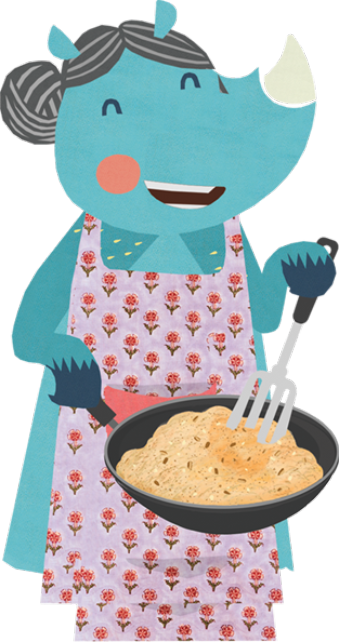The next essential nutrient is fat. Babies need good fats in their diets to support their growth and development.
Why Is Fat Important for Babies?
Energy: Fat is a dense source of energy and a major source of energy for infants. About 40-50% of your baby's total calories should come from fat, especially babies under 1.
Brain development: Fat supports brain function and neurological development. Research shows that 90% of brain development occurs in the first three years of a baby's life. Brain matter is in fact made up of fat, so fat-rich food should be in your baby's diet.
Vitamin absorption: Fat plays a key role in absorption of certain vitamins, like A, D, E, and K. These vitamins are fat-soluble, which means they need to be consumed with fat to be well absorbed in the body. Including healthy fats in your baby's meals ensures they get the vitamins they need to grow strong.
TIP: A good rule of thumb is to include a good fat source in your baby’s every meal.
Which Fats to Include?
Omega-3 Fatty Acids: Omega-3 fatty acids are essential fats for your baby's growth and development. The three main omega-3 fatty acids are alpha-linolenic acid (ALA), eicosapentaenoic acid (EPA), and docosahexaenoic acid (DHA). The body does not produce these fats, so babies need to consume them through food.
- Omega-3 plays a key role in the development of eyesight, brain, and cardiovascular system.
- Has anti-inflammatory properties.
- Studies show that children who have adequate omega-3 in their diet, especially DHA, are better at reading, have good short-term and long-term memory, and have less aggression.
- Support children’s emotional development.
Sources of Omega-3: Freshwater fish, walnuts, chia seeds, and flax seeds.
Other Fats: Other fats, such as monounsaturated and polyunsaturated fats, are also important for your baby's health.
Sources of monounsaturated fats: Avocados, nuts, seeds, and fish.
Which Fats to Avoid

Stay away from trans fats, found in most pre-packaged foods such as pies, pastries, biscuits, and fried foods. Also, read the labels of packaged foods to make more informed choices.
Current Dietary Recommendation for Fat
For 0-12 months = 0.5 gm/day
For 1-3 years old = 0.7 gm/day
This will be achieved if the mom is getting her appropriate recommendations for DHA and is breastfeeding, or the baby has started solids and is eating 100 gms of DHA-rich foods per week (100 gms = 2/3rd cup).
We recommend including 2–3 servings per week of DHA and EPA-rich foods, which is roughly the size of the palm of your baby’s hand.
Which Fat-Rich Foods Can You Include in Your Baby’s Meals
Plenty of good fats from the very start of weaning is important. There are ways to add fat by pairing it with other foods. Here’s a list of fatty foods you can include:

Here are some recipe ideas that would ensure your little one gets their daily dose of good fats!

DID YOU KNOW: Essential fatty acids like DHA and EPA are found in fatty fish like rawas (Indian salmon), bangda (mackerel), illish (herring) and trout. ALA, another essential fatty acid, is found in plant foods like walnuts, flax seeds, hemp seeds, flax seeds, and soya beans.
TIP: Low fat options are not for babies and infants. Let them enjoy the full fat richness of milk, cheese, and cream.


















